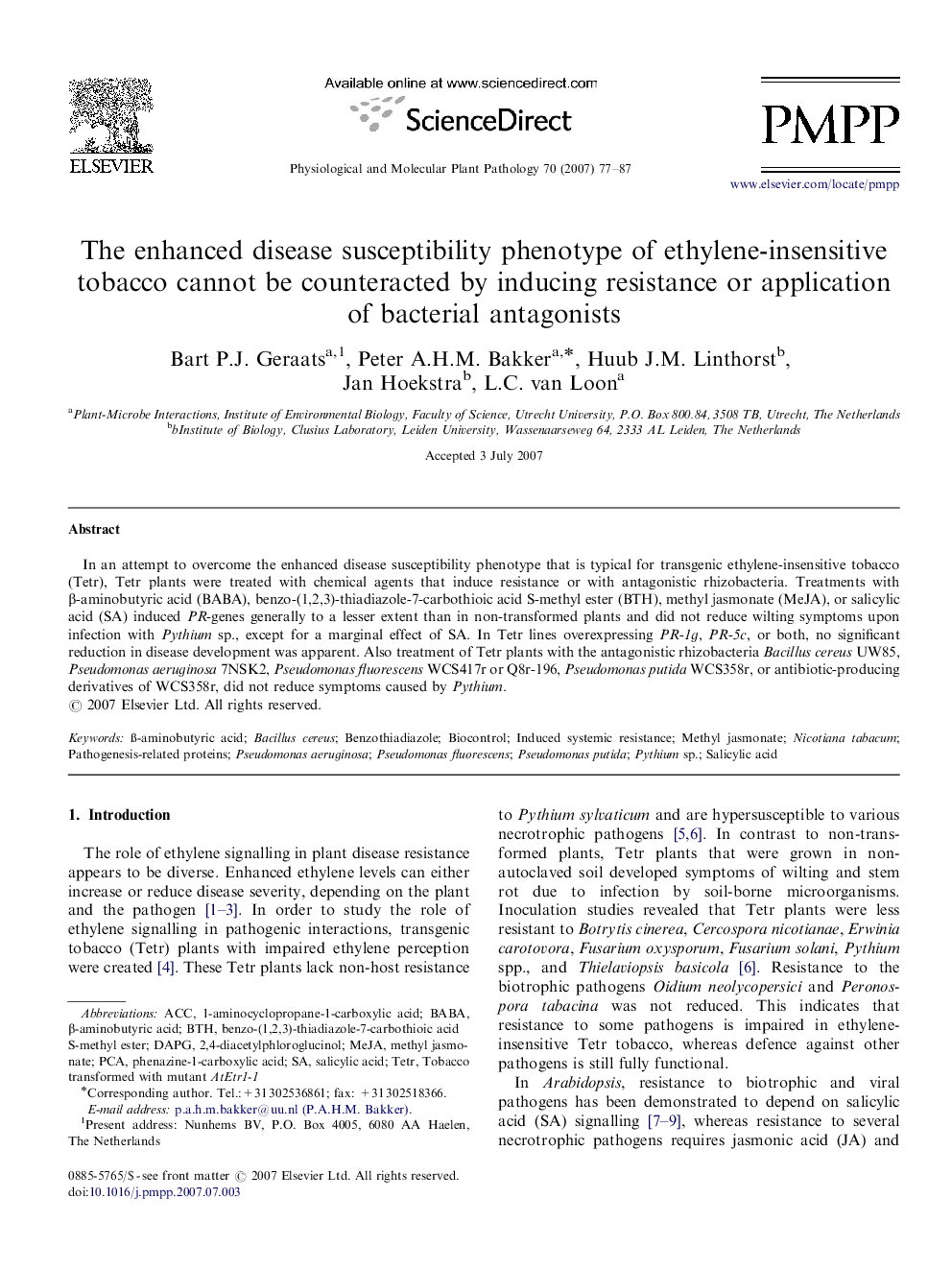| Article ID | Journal | Published Year | Pages | File Type |
|---|---|---|---|---|
| 2836749 | Physiological and Molecular Plant Pathology | 2007 | 11 Pages |
In an attempt to overcome the enhanced disease susceptibility phenotype that is typical for transgenic ethylene-insensitive tobacco (Tetr), Tetr plants were treated with chemical agents that induce resistance or with antagonistic rhizobacteria. Treatments with β-aminobutyric acid (BABA), benzo-(1,2,3)-thiadiazole-7-carbothioic acid S-methyl ester (BTH), methyl jasmonate (MeJA), or salicylic acid (SA) induced PR-genes generally to a lesser extent than in non-transformed plants and did not reduce wilting symptoms upon infection with Pythium sp., except for a marginal effect of SA. In Tetr lines overexpressing PR-1g, PR-5c, or both, no significant reduction in disease development was apparent. Also treatment of Tetr plants with the antagonistic rhizobacteria Bacillus cereus UW85, Pseudomonas aeruginosa 7NSK2, Pseudomonas fluorescens WCS417r or Q8r-196, Pseudomonas putida WCS358r, or antibiotic-producing derivatives of WCS358r, did not reduce symptoms caused by Pythium.
